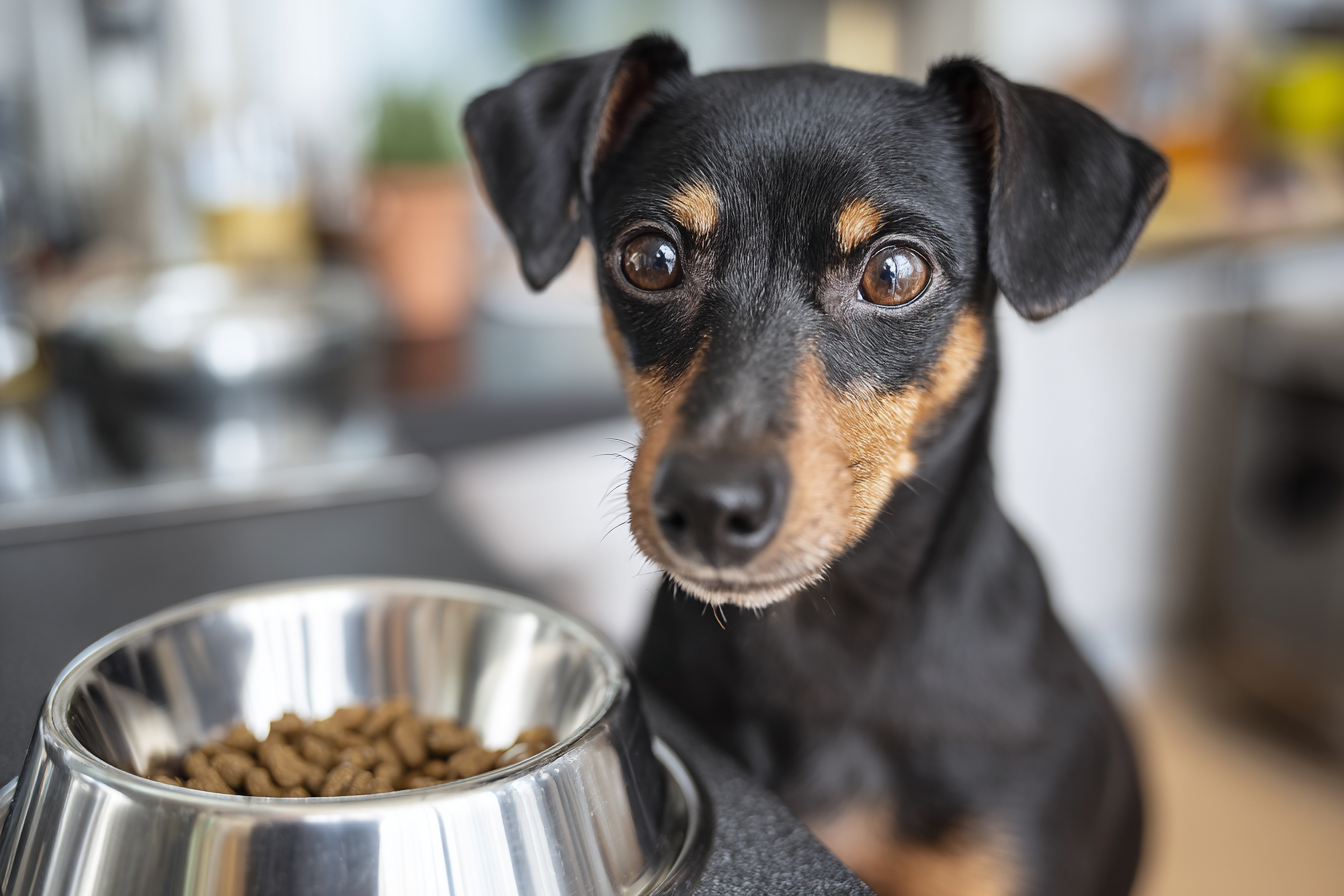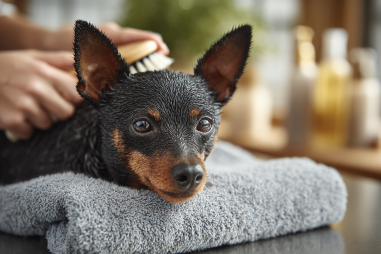Feeding your Miniature Pinscher the right diet is essential for keeping this energetic and curious little breed healthy and lively. Their small size and unique metabolism require a tailored nutritional approach that supports their activity levels while preventing common health issues. In this guide, we’ll explore everything you need to know about providing a balanced diet, including what to feed, how often, and what to avoid to ensure your Miniature Pinscher thrives through every life stage.
Nutritional Needs Specific to Miniature Pinschers
Miniature Pinschers are a small but vigorous breed known for their spirited nature and high energy. Because of their size and metabolism, they have unique dietary requirements compared to larger dogs. These pups need a nutrient-dense diet rich in high-quality proteins to support lean muscle maintenance and healthy development. Protein sources such as chicken, turkey, fish, or lamb should be prominent in their meals.
In addition to protein, fats are crucial to provide concentrated energy. Healthy fats like omega-3 and omega-6 fatty acids not only fuel their active bodies but also promote a shiny coat and healthy skin. Carbohydrates should be included in moderate amounts to supply fiber and energy, but they shouldn’t dominate the diet.
Because of their small size, Miniature Pinschers have a relatively fast metabolism but small stomachs, making it important to provide them with nutrient-rich foods in appropriate portion sizes. Balanced vitamins and minerals such as calcium, phosphorus, and antioxidants also contribute to overall health and immune function.
Recommended Commercial and Homemade Diets
When selecting foods for your Miniature Pinscher, you can choose from commercial diets, homemade meals, or a combination of both. Quality commercial dog foods formulated specifically for small breeds are designed to meet the energy demands and nutritional balance these dogs require.
Look for commercial products that list a high-quality animal protein as the first ingredient and avoid fillers like corn and wheat which may be harder for your dog to digest. Grain-free options are popular, but consult your veterinarian to ensure they are appropriate for your Miniature Pinscher since some grain-free diets may have associated health risks.
If you prefer homemade meals, aim for a balanced mix of lean proteins, vegetables, and healthy carbs like sweet potatoes or brown rice. Homemade diets can be highly nutritious but require careful planning to avoid deficiencies. Consulting with a veterinary nutritionist can help design a meal plan customized for your dog’s needs.
Portion Sizes and Feeding Frequency
Due to their small stomach size, Miniature Pinschers do best with frequent, smaller meals rather than large, infrequent ones. Feeding your dog two to three times daily helps maintain steady energy levels and prevents hypoglycemia, which this breed can be prone to due to their fast metabolism.
Portion sizes depend on your Miniature Pinscher’s age, weight, and activity level. On average, a healthy adult Miniature Pinscher weighing between 8 to 12 pounds requires about 1/2 to 1 cup of high-quality dry food per day, divided into multiple meals. Puppies, pregnant, or nursing females will require more calories, while less active or senior dogs may need fewer.
Always monitor your dog’s weight and body condition regularly. Adjust portions if you notice weight gain or loss and avoid free feeding as it can lead to overeating and obesity.
Foods and Ingredients to Avoid
Certain foods can be toxic or harmful to Miniature Pinschers and should never be given, either as treats or table scraps. Some of the top offenders include:
- Chocolate: Contains theobromine, which is toxic to dogs and can cause seizures or death.
- Grapes and raisins: Can lead to kidney failure.
- Onions and garlic: Cause damage to red blood cells leading to anemia.
- Caffeine and alcohol: Highly toxic and should be strictly avoided.
- Xylitol: A sweetener found in sugar-free gum and candies, which can cause rapid insulin release and liver failure.
- Fatty and fried foods: Can cause pancreatitis in sensitive dogs.
Additionally, avoid giving excessive bones or rawhide chews that may splinter and cause choking or digestive tract injury.
Supplements and Hydration Advice
Most Miniature Pinschers get adequate nutrients from a well-balanced diet, but certain supplements may benefit their health depending on individual needs:
- Omega-3 fatty acids: From fish oil, these support skin and coat health and reduce inflammation.
- Glucosamine and chondroitin: Help maintain joint health, especially in older dogs.
- Probiotics: Promote healthy digestion and gut flora.
Always consult your veterinarian before adding supplements to ensure proper dosage and safety.
Hydration is equally important. Provide fresh, clean water at all times to keep your Miniature Pinscher properly hydrated. Small breed dogs can be more sensitive to dehydration, so you may want to encourage water intake after exercise and during warmer months.
Adjusting Diet for Different Life Stages
The dietary needs of your Miniature Pinscher will evolve throughout their life. Catering to these changes is critical to keeping them healthy and comfortable at every stage.
Puppy Stage
Puppies need calorie-dense diets rich in proteins, fats, and essential nutrients to support rapid growth and development. Feeding formulas designed specifically for puppies ensures they receive vital vitamins and minerals. Multiple small meals per day, typically three to four, are recommended.
Adult Stage
Once your Miniature Pinscher reaches adulthood, focus on maintaining a balanced diet that meets their energy requirements without excess calories to prevent weight gain. Two to three meals daily are usually sufficient.
Senior Stage
Seniors often benefit from diets lower in calories but enriched with joint-supporting supplements and easily digestible ingredients. You might also notice changes in appetite, so feeding smaller, nutrient-rich meals can be helpful.
Throughout all life stages, regular veterinary checkups can provide guidance on adjustments and help detect any dietary-related health issues early on.
Caring for a Miniature Pinscher’s nutritional needs requires attention and a thoughtful approach, but the rewards are a happy, healthy companion full of energy and vitality. By providing a balanced diet rich in quality ingredients, appropriate portions, and avoiding harmful foods, you lay the foundation for your dog to thrive for years to come.







